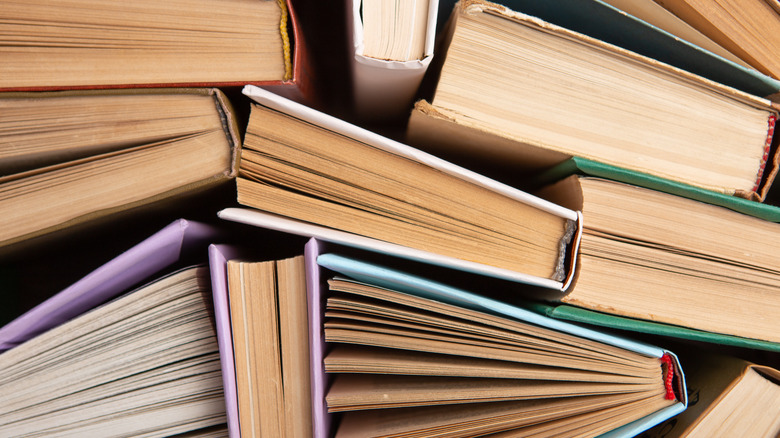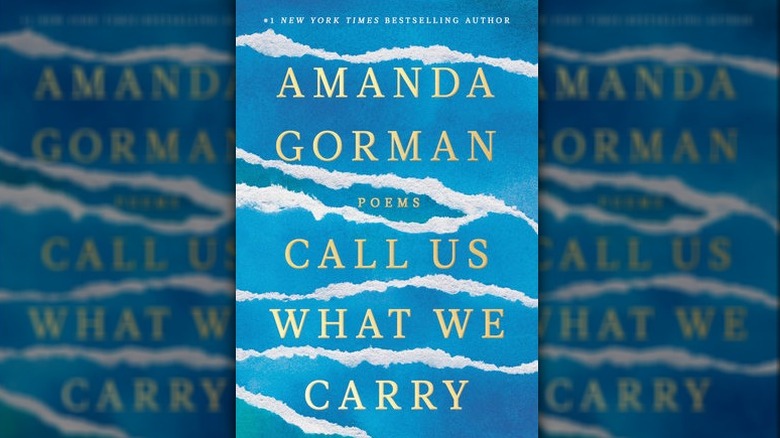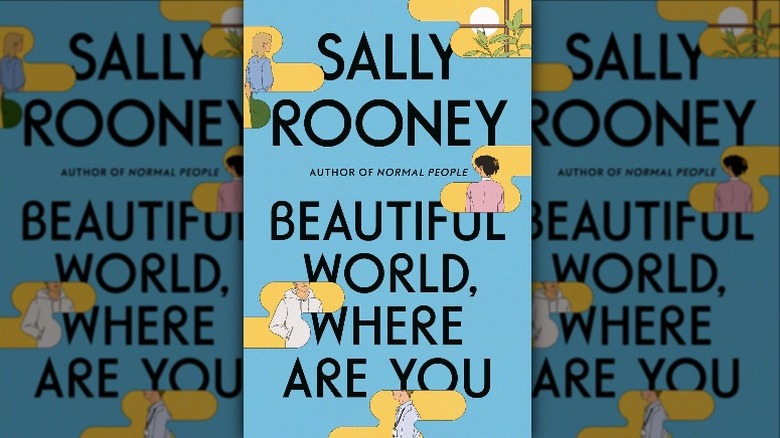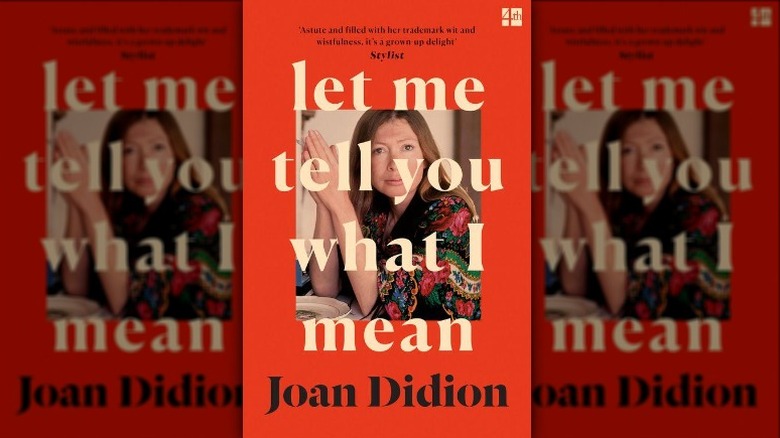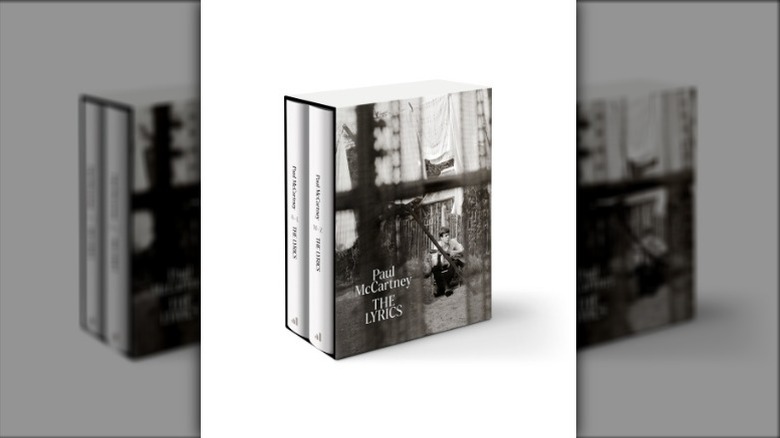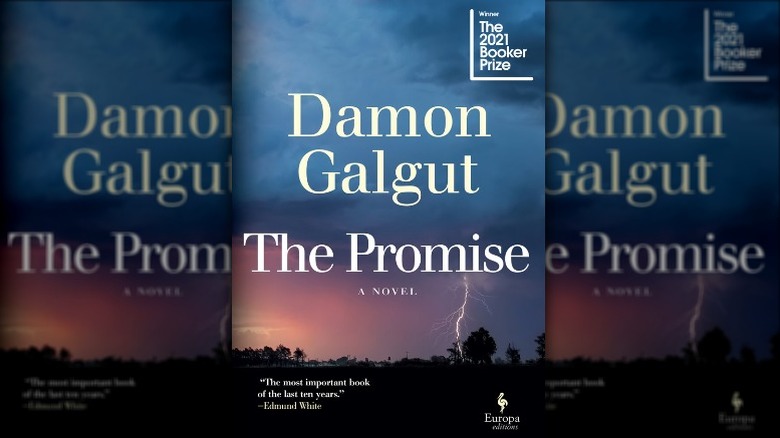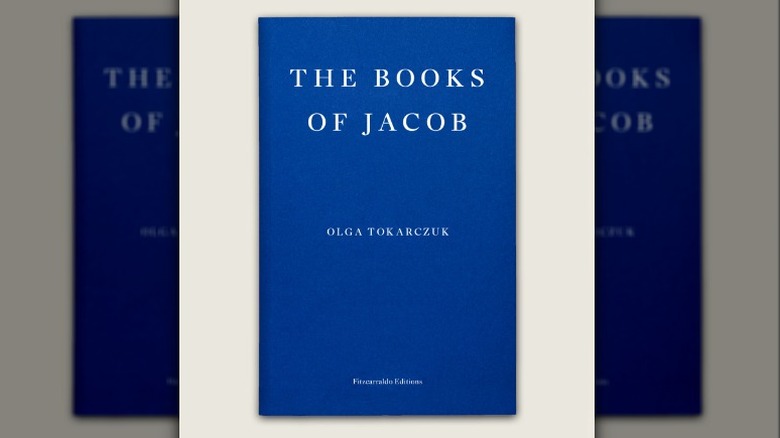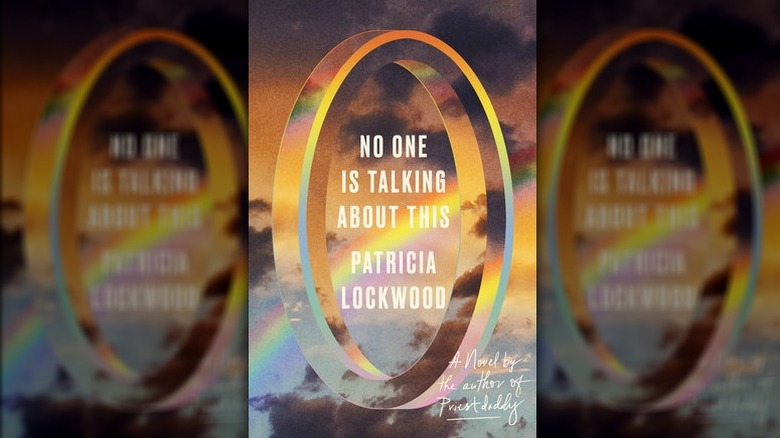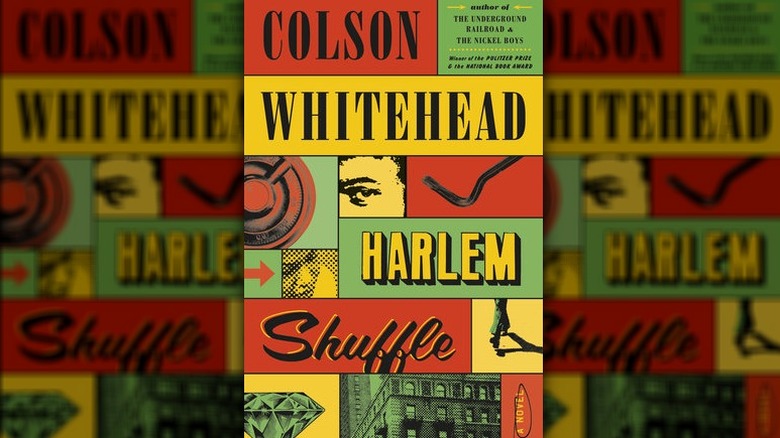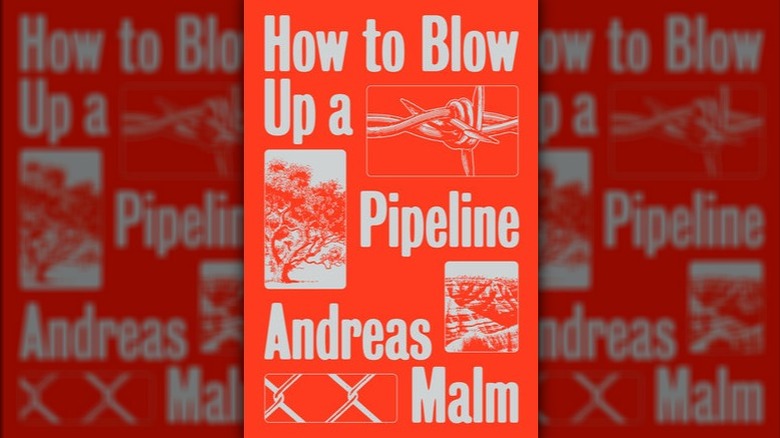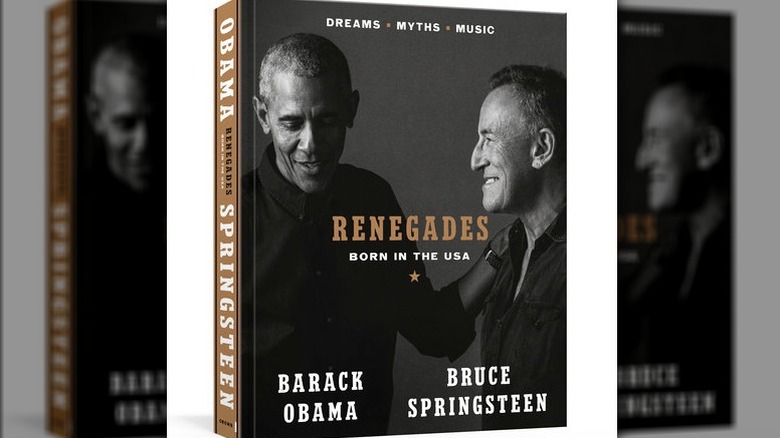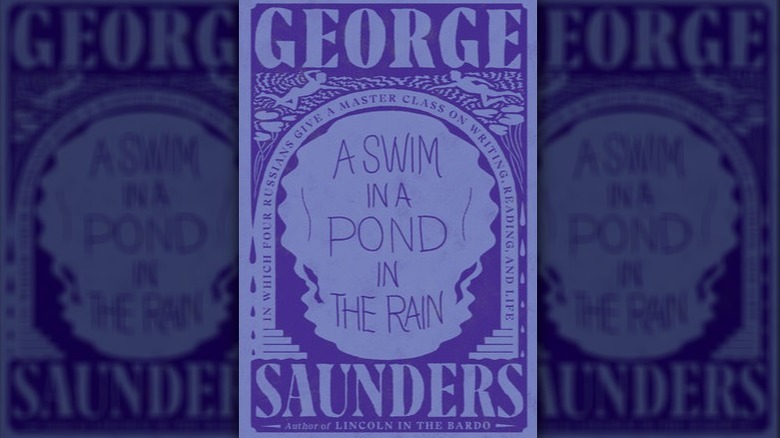These Are The Best Books Of 2021
There was a time in the not too distant past that commentators were signaling that the reading of books had entered terminal decline. In a 2014 study titled "The Decline of the American Book Lover," The Atlantic's Jordan Weissman traced a chronic downturn in American reading habits. Weissman revealed that, at the time, almost one in four Americans surveyed hadn't read a single book in the past year, while among the American populace there were more than three times as many "non-book-readers" as there were back in 1978. Among readers, there was also a marked decline in the number of books being consumed, Weissman revealed.
Such stats are the stuff of nightmares for bookworms: Fewer readers mean fewer writers, and fewer writers mean fewer books!
However, recent years have been cause for optimism. Despite fears that readers would be turned off books in favor of new media such as the internet and video games, book sales have actually increased year-on-year in the United States since 2011, while the industry enjoyed a bumper year in 2020, selling an extra 57 million units for a total of 750 million — the highest number of sales since 2008 (via Statista). Business is booming.
But publishing is always a crowded market, and with so many titles and so little time, the question is always about which books to be sure to make time for. Here are the best books of 2021, the titles that scooped awards, created buzz, and turned up on book critics' yearly round-ups time and time again.
Call Us What We Carry – Amanda Gorman
In the U.S., January heralded not just the start of a new year, but of a new government, with the inauguration of new President Joe Biden. The ceremony occurred on January 20, just two weeks after the nation was rocked by a violent insurrection on Capitol Hill in which protestors attempted to prevent the peaceful handover of power. As well as cementing Biden's electoral win, the inauguration also had to be a moment of healing.
But the star of the show wasn't Biden himself, or even the incoming Vice President Kamala Harris. Instead, the world was captivated by the performance of Amanda Gorman, who at just 22-years-old became the youngest inaugural poet in American history, according to NPR.
Gorman's poem, "The Hill We Climb," was written in direct response to the violence at Capitol Hill, and addressed the president and the nation with the belief that "[w]hen day comes we step out of the shade, aflame and unafraid" (via Town & Country). Gorman also made history when her book of the poem went to number one on USA Today's Best-selling Books List.
The poem is also the centerpiece of Gorman's first collection, "Call Us What We Carry," which was released, after delays, on December 7. Described as a collection with a "soaring sense of history and solidarity" by the poet and critic Kit Fan (via The Guardian), within days the celebrated work had hit number one on the Amazon bestseller list, according to She Knows.
Beautiful World, Where Are You – Sally Rooney
Undoubtedly the most anticipated book of 2021, Sally Rooney's "Beautiful World, Where Are You" — her third novel to be published, following the bestselling "Conversations with Friends" and "Normal People," which was later turned into a successful Hulu Originals series — arrived on a wave of hype propelled by teaser copies distributed by Rooney's publisher, Farrar, Straus & Giroux, as well as an industry-leading amount of Instagram-friendly merch, per The New York Times. In the final weeks of summer, it felt as if everyone's timelines, stories — and, in the street, tote bags — were adorned with the admittedly eye-catching cover of the soon-to-be-chart-topping novel.
According to The Guardian, fan fervor led to the emergence of something of a Sally Rooney black market, with pre-release copies of the book — known in the industry as "galleys" — selling online for more than $200. But did the novel live up to the insane levels of hype?
In a review on Vox, culture writer Constance Grady noted how Rooney's new novel pivots from the generation-defining themes of Millennial apathy and postmodern relationships to offer a self-reflexive critique of Rooney's own celebrity: Alice Kelleher, the protagonist of "Beautiful World," is a famous young author struggling to come to terms with the conditions imposed upon her by her newfound fame. Grady suggests that, while executing "beautifully," this may make the novel less of a crowd-pleaser than Rooney's previous work. However, "Beautiful World" won the public vote to top Good Reads' "Best Books 2021" list, while the novel has appeared on the vast majority of the yearly round-ups of the major news outlets.
Let Me Tell You What I Mean – Joan Didion
While 2021 was a big year for breakthrough writers, it was also a year in which some of literature's biggest names were looking back over their long careers. The American essayist Joan Didion has been a literary icon for the five decades, but her work still had the power to startle, as reviewers noted upon the release of "Let Me Tell You What I Mean, a collection of 12 previously uncollected essays from the early part of Didion's career.
According to NPR, half of the pieces were written for the "Saturday Evening Post" in 1968, the year in which Didion published her landmark collection, "Slouching Towards Bethlehem," while the most recent essay in the book, "Everywoman.com," a profile of Martha Stewart, dates from 2000. As NPR notes, that essay, like many others in the collection, is testament to Didion's prescience and uncanny "farsightedness." Written four years before Stewart's imprisonment, the piece notes as a risk factor to Stewart's business the importance of maintaining an untarnished reputation. Another essay, on the topic of Didion's being rejected from Stanford University, notes that "getting into college has become an ugly business," anticipating the headlines generated by the college entry bribery scandal of 2019.
As noted by The New York Times, Didion claims to "write entirely to find out what I'm thinking, what I'm looking at, what I see and what it means," and this new collection is testament to Didion's characteristically inquiring spirit she is known for.
The Lyrics – Paul McCartney with Paul Muldoon
Western culture's decades-long love affair with The Beatles, and with Paul McCartney in particular, showed no sign of abating in 2021. Having emerged from lockdown in 2020 with "McCartney III," the songwriter's warmly received 18th solo album, April 2021 saw the release of "McCartney III Imagined," a remixed version of the previous release featuring some of pop's heaviest hitters, including Beck, Phoebe Bridgers, and Damon Albarn (via Pitchfork). And in November, the release of "Get Back," Peter Jackson's intimate documentary series chronicling the final months of The Beatles using contemporary never-before-seen footage, was finally released on Disney+ to great acclaim, as per Radio Times.
But the year's Beatles offerings didn't end there, as the fall also saw the publication of arguably the year's biggest music book: McCartney's "The Lyrics: 1956 to Present." But the book isn't simply an anthology. Edited by acclaimed poet Paul Muldoon, each set of lyrics on offer is accompanied by detailed annotations that explain the songs themselves, but also come to reflect the story of McCartney's life.
Per The Conversation, what results is a vivid "self-portrait in song," made all the more pleasurable for fans by the inclusion of more than 600 photographs of McCartney, his friends, family, and musical accomplices, and evocative memorabilia from his long career, making the book a must read for any fan of one of pop music's most enduring stars.
The Promise – Damon Galgut
In recent years the United Kingdom's biggest literary award, the Booker Prize, has become more competitive and sought after than at any time in its illustrious six-decade existence. Much of this is due to the change of the prize's parameters in 2014, making eligible for entry any novel written in English published in the U.K. and Ireland, regardless of nationality, as per the BBC. Previously, only authors from the British Commonwealth, Ireland, South Africa, and Zimbabwe were eligible.
As critics of the changes feared, the last few years of the prize have been dominated by North American writers, but 2021 followed last year's resurgence of the prize's old guard (2020's winner was Scottish author Douglas Stuart) with South African novelist Damon Galgut scooping the prize for his acclaimed book "The Promise" (via The Los Angeles Times).
Telling the story of three generations of the Swart family, described in the book as "just an ordinary bunch of white South Africans" (via The New York Times), Galgut's novel examines the social injustices of the apartheid that gripped his nation for decades. But as The New York Times notes, "The Promise" isn't simply a realist novel but is "kaleidoscopic," as well as "cinematic," with unconventional narrative devices that make Galmut's work full of aesthetic surprises.
The Books of Jacob – Olga Tokarczuk
Olga Tokarczuk's 2018 Nobel Prize win catapulted the Polish writer and activist to international fame. In the same year, her 2017 novel, "Flights," won the Booker International Prize, cementing her work as some of the best being translated into the English language.
And November 2021 finally saw the publication of the English translation of what many consider to be Tokarczuk's greatest work: "The Books of Jacob," the writer's sprawling historical epic set in 18th century Poland tracing the life of Jacob Frank, a Jewish heretic who claimed to be the Messiah and who urged his followers to defy religious and societal norms.
But "The Books of Jacob" is no simple life story. As The Guardian's Marcel Theroux explains, Tokarczuk's scope is vast, and her work "dauntingly ambitious," working more as a panorama of 18th-century Polish society than a traditional narrative. At the same time, Tokarczuk's themes are the biggest of all, with her investigations into the nature of religious belief accompanied by striking philosophical explorations of the meaning of life itself.
No One is Talking About This – Patricia Lockwood
Patricia Lockwood has established herself as one of the most dynamic and genre-hopping writers in American letters, making her name initially as a poet before enjoying success with her bestselling memoir, "Priestdaddy." In 2021, Lockwood published her first novel, "No One Is Talking About This," which was subsequently shortlisted for the Booker Prize.
Anticipated by the essay "How Do We Write Now?" — which The Guardian notes is Lockwood's exploration of how artists might negotiate creative work in light of the increasing ubiquity of the internet — "No One Is Talking About This" explores the shadow cast over our perception of the world through the eyes of a protagonist who is "extremely online," and how the fleeting irony of tweets and meme culture perhaps undermines our collective ability to approach real life with the seriousness and clarity that is perhaps required of us.
Orbiting around the life of a young writer who becomes famous for her tweets, "No One Is Talking About This" creates what NPR describes as an "insider tour" of how internet culture works, and the interior dynamics of fast-paced online discourse in all its superficial seductiveness.
Harlem Shuffle – Colson Whitehead
Two-time Pulizer Prize-winner Colson Whitehead's novel begins in 1959 and tells the story of Ray Carney, an ambitious family man who owns a furniture store on Harlem's 125th Street (via NPR). He reluctantly becomes tied up in violent crime through his cousin, Freddie, after a heist goes awry. The novel revisits Carney through 1964, at the time of the Harlem Riots.
Described as such, it may sound that "Harlem Shuffle" could be po-faced or moralistic; instead, it is comic and vivid, with a Joycean flair for evoking a sense of time and place (via Publishers Weekly). As noted by Kirkus Reviews, Whitehead has risen to new heights of popularity in recent years thanks to the success of "The Underground Railroad," published in 2016 and made into a critically acclaimed Amazon Prime series in 2021, and 2019's "The Nickel Boys" — both of which focus extensively on themes of social justice. "Harlem Shuffle," meanwhile, is described as being Dickensian in its execution, with a picaresque cast and a capering attitude towards their criminal activities.
How To Blow Up A Pipeline - Andreas Malm
In October and November 2021, all eyes were on COP 26, the United Nations Climate Change Conference in Glasgow, Scotland, which aimed to form an agreement between the world's largest nations to make decisive steps in the fight against climate change. And as the issue becomes more urgent, more and more writers have begun to tackle what has become the most dangerous threat to human life.
The strikingly titled "How To Blow Up A Pipeline" is Swedish author Andreas Malm's radical and subversive critique of climate inaction which — somewhat shockingly — explores whether nonviolent protest is still activists' best option when it comes to effecting the seismic change humanity now requires to avert untold disaster. Despite the incendiary title, Malm's work does not offer practical advice on industrial sabotage, but rather, as The New York Times' Ezra Klein notes, is intellectual in its intentions and explores the "practical benefits of violence" (Klein suggests that a more apt title would be "Why to Blow Up a Pipeline").
As Klein notes, the book makes for uncomfortable reading, asking the reader to confront a moral dilemma that would get many people's pulses racing. And not all critics have been positive: In Canadian Dimension, reviewer James Wilt accuses Malm of ignoring the consequences of the actions his work promotes, describing it as an "astonishing abdication of responsibility," while Alan Thornett notes that even Googling the practicalities of violent action could lead to activists' arrests. The New York Times, however, claims that the book offers "new ways" to think about climate change, despite the controversy surrounding it, and it was named among the best of the year by Foreign Policy.
Renegades: Born In The USA – Barack Obama and Bruce Springsteen
Created out of dialogues between two of America's most towering figures, Barack Obama's and Bruce Springsteen's "Renegades" offers a freewheeling but sincere deep-dive into the commonalities and differences of its two subjects' lives and their perspectives on their shared homeland. The book has quickly become a bestseller, despite the written material presented here already available via a long-running podcast of conversations between the two men.
Much of this is perhaps thanks to the presentation. AP's Donna Edwards describes the book as "smart" and "beautiful," and as The Guardian notes, much of the appeal is in the volume's deluge of color photographs, which don't just include portraits of The Boss and former president but detailed reproductions of artefacts from their pasts: Springsteen's handwritten lyrics and Obama's annotations to his most famous speeches are worth poring over, offering insights to fans and distant admirers alike into the working practices of two men for whom the personal and the political go hand-in-hand.
A Swim in a Pond in the Rain – George Saunders
George Saunders is one of America's best-loved masters of the short story genre, as well as a respected essayist whose talent has seen him the recipient of a string of awards, not least a $500,000 MacArthur Fellowship in 2006.
In "A Swim in a Pond in the Rain: In Which Four Russians Give a Master Class on Writing, Reading, and Life," Saunders turns his abilities as an essayist to the subject of the short story itself, through the analysis of seven stories by great Russian authors. Saunders -– who claims that he is "not a critic or a literary historian or an expert on Russian literature," per The New York Times -– is a teacher of creative writing at the University of Syracuse, and as such the purpose of "A Swim" is "mainly diagnostic: If a story drew us in, kept us reading, made us feel respected, how did it do that?"
Arising from Saunders' lessons and interactions with his students, the resulting work revels in the ambiguities of great writing and the instinctive, lightning-fast narrative decision-making that makes for the creation of great writing. But as the subtitle suggests, the book is also about life, and how to live it well.
